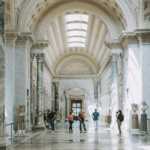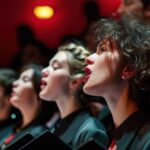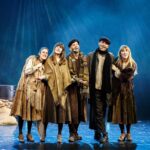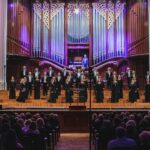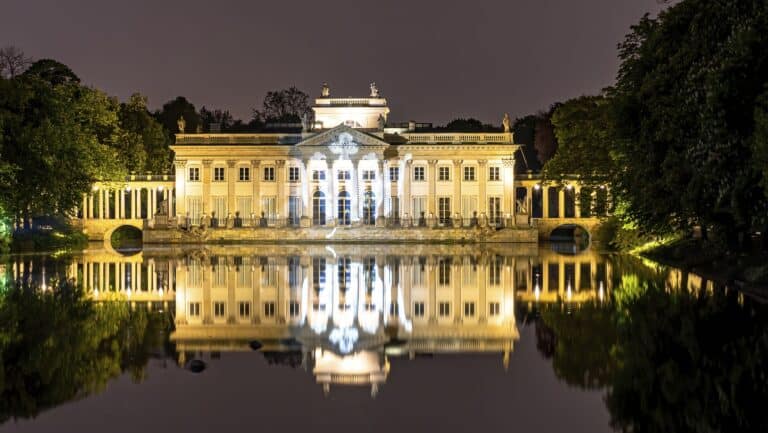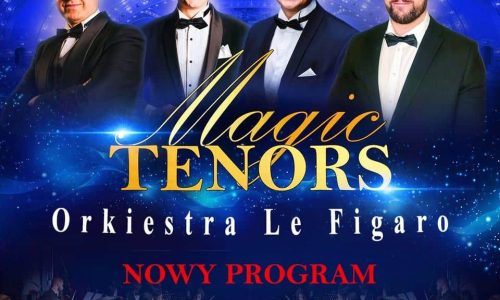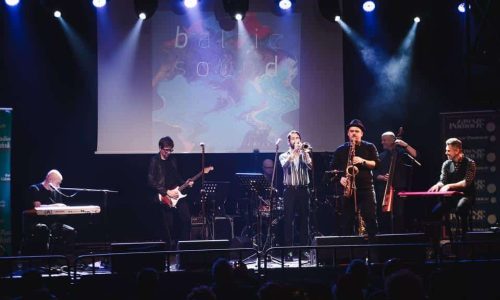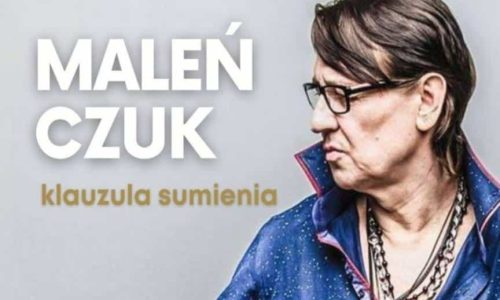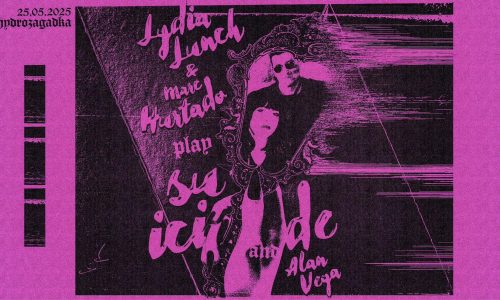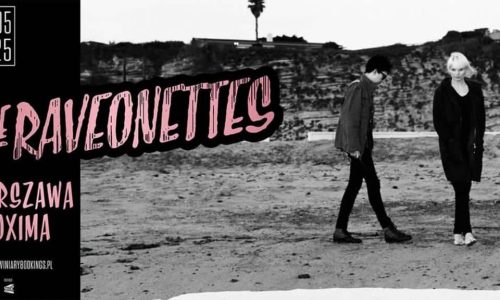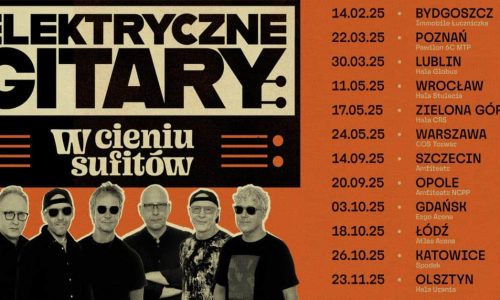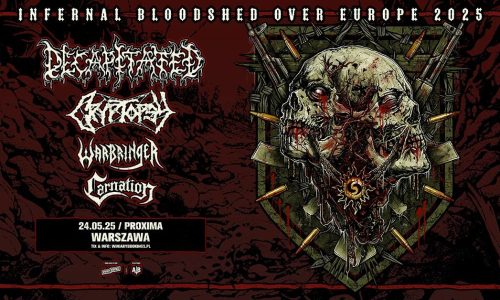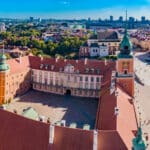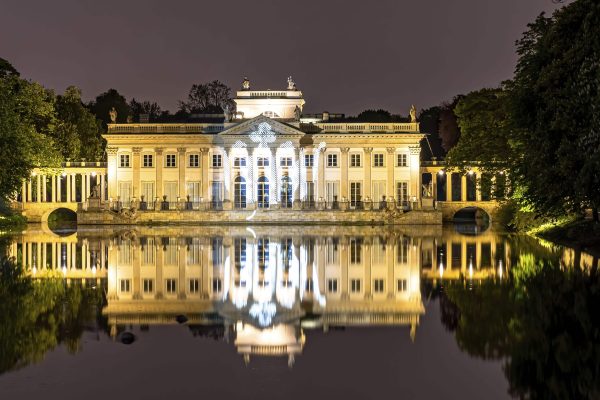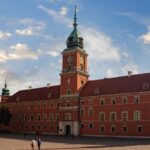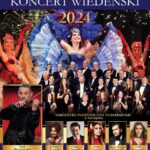We invite you to a unique concert combining the musical traditions of the Christian East and West. Two separate yet complementary worlds will meet: the world of sacred music associated with Orthodox spirituality, represented by the ensemble Katapetasma, and the world of music rooted in the Latin tradition, interpreted by the ensemble Flores Rosarum.
The event accompanies the 'Roads to Jerusalem' exhibition.
Flores Rosarum
The vocal ensemble Flores Rosarum (Latin for rose petals) was founded in 2007 on the initiative of Sr. Susi Ferfoglia - organist, Gregorianist and researcher of medieval music. The ensemble's repertoire includes works of early music and sacred music, whose performances are characterised by in-depth interpretation and fidelity to the sources. One of the ensemble's most important achievements is the staging of Ordo virtutum, a medieval morality play of exceptional artistic and spiritual value. Flores Rosarum actively promotes the performance of Gregorian chant both on the concert stage and in the liturgy.
Susi Ferfoglia - organist, Gregorianist, lecturer at the Inter-University Institute of Church Music of the Pontifical University of John Paul II in Krakow. Graduate of the Academy of Music in Kraków and the Ignatianum Academy. Doctor of Philosophy of Culture at the Jagiellonian University, habilitated at the Academy of Music in Krakow. She obtained a specialisation in Gregorian semiology and palaeography at the Conservatorio di Musica della Svizzera Italiana in Lugano. Founder of postgraduate studies in liturgical monody, awarded the Golden Cross of Merit for her contribution to the development of musical culture.
Catapetasma
The Katapetasma Male Orthodox Church Music Ensemble takes its name from the Greek word for the veil hung in the iconostasis door that separates the altar from the rest of the sanctuary - a symbol of spiritual mystery and contemplation. The ensemble explores the oldest traditions of Orthodox church singing - Byzantine, Old Russian and Georgian - presenting the richness and depth of Eastern spirituality. The repertoire ranges from monodic forms to polyphonic monastic melodies that have accompanied the liturgy of the Orthodox Church for centuries.
Catapetasma is a community of psalmists, conductors and theologians who view the concert as a continuation of the liturgical experience of sacred music.
Łukasz Hajduczenia - founder and leader of the ensemble, graduate of the Orthodox Theological Seminary in Warsaw, the Fryderyk Chopin University of Music and the Guildhall School of Music and Drama in London. He received his PhD in 2024 from the University of Warsaw, based on his thesis "Musical Form of Orthodox Liturgy. A study of the Eastern liturgical tradition in the discourse of artistic experience'. He is a soloist with the Warsaw Chamber Opera, a winner of many international vocal competitions and a researcher of early Orthodox music.
Concert programme:
Let the prayer be fulfilled - Supraska Irmologion (16th century).
Song of the Sibyl - Toledo (1300).
Psalm 'By the rivers of Babylon', polyphonic demetshnnyi, kriukov Irmologion Lavrovsky (16th century).
Liber generationis - Archives and Library of the Cracow Cathedral Chapter, no. 58.
Sunday Kinonik - Byzantine melody, Manuel Chrisafis, version from the Supra Irmologion (16th century).
"Hosanna Filio David", antiphon for Palm Sunday - from Gradual MS. 205 from the Library of SS. Poor Clares in Kraków (13th century).
John Damascene's Stycher for Palm Sunday, Kyiv Irmologion (17th century).
Maundy Thursday: Ubi caritas, hymn for the rite of washing feet - from Gradual MS. 205 from the Library of SS. Clare Sisters in Kraków (13th century).
Stychera for the rite of washing feet - the melody of the irmologions of the former Republic.
Good Friday: Improperia - Archives and Library of the Cracow Cathedral Chapter, no. 45.
To Thee, who clothe Thyself with light like a garment - Multan singing from the irmologions of the old Republic.
Trisagion for the procession with the shroud - Supraska Irmologion (16th century).
Holy Saturday: inventor rutili - Archives and Library of the Cracow Cathedral Chapter, no. 45.
Blessed are you Lord - verses on the resurrection, chant signifierj.
The three stations of Jerusalem's Holy Saturday matins - the irmologions of the former Commonwealth.
Resurrection Sunday: Surrexit Christus hodie - two- and three-voice chants from Gradual MS. 205 from the Library of SS. Clare Sisters in Kraków (13th century).
Pascha canon - Byzantine chant.
Communio: Jerusalem surge - Missale plenarium No. 3 from the Archives and Library of the Cracow Cathedral Chapter.
Shine forth, shine forth New Jerusalem! - Catabasis of the Pascha Canon, Byzantine chant.














